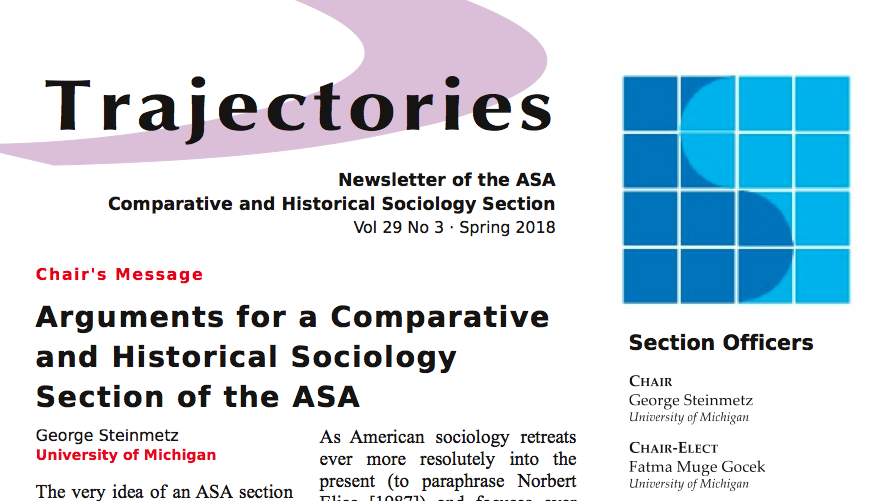Doctoral students in departments of sociology who have not yet defended their dissertation proposals are invited to apply to dissertation proposal development workshops on “problem solving sociology.” Northwestern University will pay for economy-class airfare and accommodation in Evanston, IL, plus meals and transportation expenses, for a one-day preliminary workshop as well as a one-day final workshop. These workshops are made possible by a grant from the National Science Foundation.
Problem-solving sociology seeks to use sociological theory to shed light on solving (not just describing) contemporary social problems, and seeks to use investigation of these problems to further sociological theory. The approach proceeds from the assumption that mitigating critical social problems can be a catalyst for breakthroughs in the basic understanding of society.
Workshop participants will attend two one-day workshop events: a preliminary workshop (November 29, 2018, or December 6, 2018) to introduce the approach and give preliminary feedback to students’ ideas, and a final workshop (May 23, 2019 or May 30, 2019) to give more detailed feedback on students’ full dissertation proposals.
To apply, please submit by September 30, 2018, to mirieliyahu2014@u.northwestern.edu a short cover letter detailing your university, your year in the program, whether or not you have defended your dissertation proposal and what date you expect to defend it, and any other information that might be relevant (including if one of the dates above does not work for you—but please note that in that case we may not be able to accommodate you at all); and a separate document, no more than 2 single spaced pages, responding to some or all of the following questions (not all questions will be relevant for all applicants):
1) What is the social problem that you seek to solve? What are some potential solutions, and how can research shed light on how to move forward with solutions?
2) What social theories or approaches might be useful in solving this problem? If none, can you use this research as a way to critique and reformulate existing theories?
3) (more relevant for some topics than others) Have you been involved with non-academic groups that work on this problem? Describe if so, or if you have plans to be in future. Do you see a way to engage sociological theory with the work of these groups?
4) (if possible) How could short-term solutions feed into longer-term, structural change on this problem?
We welcome both creative and ambitious ideas, as well as focused and practical ideas, as well as ideas that are somewhere in between. If the problem is the basic structure of the economic system and the only solution that you see is revolution, then think about how to bring about revolution. If the problem is colleges closing over spring break and low-income students having nowhere to go, think about how to get institutions to respond to the needs of nontraditional members. If the problem is racism or sexism, think about how to solve (not just describe) racism or sexism. If you already know the solution to the problem, but the problem is convincing policymakers, then focus on how to convince (or change) policymakers.
Problem-solving sociology is discussed in the latest issue of Contemporary Sociology but we are less interested in whether or not you have read this material and more interested in hearing your original ideas.

